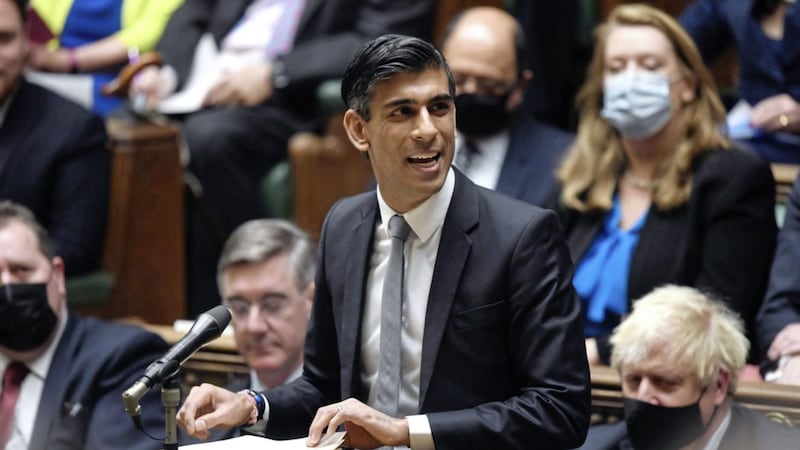THE much anticipated, and heavily trailed autumn budget and spending review was delivered by Chancellor Rishi Sunak last week. And it was a bigger budget than expected, for a number of reasons.
The Chancellor’s room to manoeuvre was boosted by a much more optimistic outlook from the Office for Budget Responsibility (OBR) which sees less permanent scarring from the pandemic on the economy.
The Chancellor’s ability to spend was further enhanced by borrowing coming in about £34 billion lower this year and a better economic growth number for 2021 than previously thought.
There is a lot of ‘noise’ in the economic numbers at the moment so it is still a bit of a guessing game but the economy is now expected to post a growth rate of 6.5 per cent for 2021, up from the 4 per cent that was predicted in March. The Chancellor also has close to £40bn extra in his calculations coming from tax rises previously announced.
While the economic growth projections for this year are better than expected, the fear of inflation lurked over this budget. Inflation is now forecast to average 4 per cent over the coming year, double what OBR expected previously.
Many of the factors that are driving inflation concerns are global issues and there was not a lot the Chancellor could do about them. He will however be concerned that inflation proves more than transitory and derails his plans.
At the moment these inflation concerns are having a direct impact on people and could act as a brake on the economy delivering the growth that much of his spending plans are pinned on.
For example, petrol and diesel prices here have soared well above 140 pence per litre and the energy regulator is warning of more increases in electricity and gas prices during the winter. Having taken increases in excess of 25 per cent in electricity and gas in recent months, with more increases to follow, it could be a very hard winter.
Inflation concerns aside, given the better economic prospects, the Chancellor was able to announce a range of sizeable initiatives. The 6 per cent increase in the National Minimum Wage and changes to the Universal Credit taper will be a welcome boost to low earning employees but for many, the cost of living increases will be greater than the increase in wages.
The Resolution Foundation has calculated the impact of various changes on different people. For a single parent working part-time, the increase in wages and changes to the taper on Universal Credit announced by the Chancellor will not be enough to offset the £20 a week cut to Universal Credit that was implemented before the budget once increased costs are considered.
However, some families on Universal Credit and the National Living Wage will be better off, even after allowing for inflation. It is marginal, and I doubt there will be many, if any in Northern Ireland lifted out of poverty by this Budget.
Looking at what the Chancellor did for the Executive’s coffers, a £1.6 billion per annum boost was announced. At face value that appeared to be a generous settlement but our Finance Minister challenged the numbers, suggesting that over the next three years the increases will amount to £450m, £670m and £866m.
It all boils down to the baseline from which the increases are compared and our finance department is quoting a larger figure for Northern Ireland’s spending this year than the Chancellor seems to be.
The size of the number is important but more important is what we deliver with the money. I don’t subscribe to the view that we don’t have enough money and that we need to raise more of our own taxes, not until I see that we are running this place efficiently.
We cannot just continue to pour more money into all our services as a way of solving public services problems.
The list of challenges is damning. The health service is close to collapsing under the demands we place on it.
For all our claims about having a world class education system, it fails to deliver for too many. Our infrastructure is creaking. Areas of deprivation, poverty rates and economic inactivity levels remain unresolved. We have long housing waiting lists and too much sub-standard housing. You get the picture.
More funding is definitely part of the solution but something radical has to change, and fast. The Chancellor has delivered a better Budget than many thought he could. The focus now shifts to our Executive to start using the money more effectively.
:: Andrew Webb is chief economist at Grant Thornton
:: Next week: Paul McErlean







